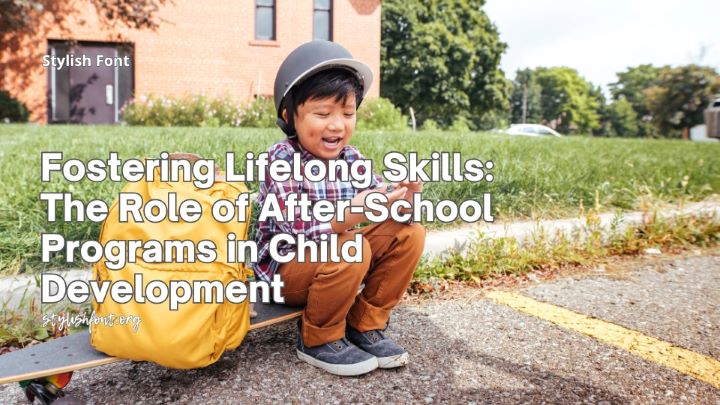Artificial Intelligence (AI) has emerged as a transformative force across various sectors, and education is no exception. The integration of AI into educational policy is reshaping how institutions approach teaching, learning, and administration. As educational systems grapple with the demands of a rapidly changing world, AI offers innovative solutions that can enhance learning experiences, streamline administrative processes, and provide personalized educational pathways for students.
The intersection of AI and education policy is not merely a trend; it represents a fundamental shift in how educational stakeholders envision the future of learning. The advent of AI technologies in education has prompted policymakers to reconsider traditional frameworks and adapt to new realities. With the potential to analyze vast amounts of data, AI can inform decision-making processes, identify areas for improvement, and tailor educational strategies to meet diverse student needs.
As such, the role of AI in education policy is becoming increasingly significant, necessitating a comprehensive understanding of its implications for educators, students, and the broader society.
Key Takeaways
- AI has the potential to revolutionize education policy by improving access, personalization, and efficiency in educational systems.
- AI can help in identifying and addressing gaps in educational systems, improving student outcomes, and informing evidence-based policy decisions.
- The role of AI in shaping education policy involves leveraging data analytics, predictive modeling, and automation to inform decision-making and resource allocation.
- Challenges of AI in education policy include data privacy, algorithmic bias, and the need for upskilling educators and policymakers, while opportunities include personalized learning and improved resource allocation.
- Ethical considerations of AI in education policy include ensuring fairness, transparency, and accountability in decision-making processes, as well as addressing concerns about job displacement and inequality.
The Impact of AI on Educational Systems
Enhanced Personalized Learning Experiences
AI algorithms can analyze individual student performance data, learning styles, and preferences to create customized learning paths. This level of personalization allows educators to address the unique needs of each student, fostering engagement and improving academic outcomes. For instance, adaptive learning platforms powered by AI can adjust the difficulty of tasks in real-time based on a student’s responses, ensuring that learners are neither overwhelmed nor under-challenged.
Streamlined Administrative Functions
AI has the potential to revolutionize administrative functions within educational institutions. By automating routine tasks such as grading, scheduling, and resource allocation, AI can free up valuable time for educators to focus on teaching and mentoring students.
Improved Resource Allocation and Innovation
This efficiency not only enhances the overall functioning of educational systems but also contributes to a more effective allocation of resources. As a result, institutions can redirect their efforts toward innovative teaching methods and improved student support services.
The Role of AI in Shaping Education Policy

AI plays a crucial role in shaping education policy by providing data-driven insights that inform decision-making processes. Policymakers can leverage AI tools to analyze trends in student performance, identify achievement gaps, and assess the effectiveness of various educational programs. This data-centric approach enables stakeholders to make informed choices that align with the needs of students and communities.
For example, AI can help identify which teaching methods yield the best results for specific demographics, allowing policymakers to allocate resources more effectively. Furthermore, AI can facilitate collaboration among educators, administrators, and policymakers by providing a common platform for sharing insights and best practices. By harnessing the power of AI-driven analytics, stakeholders can engage in evidence-based discussions that lead to more effective policies.
This collaborative approach not only enhances transparency but also fosters a culture of continuous improvement within educational systems.
Challenges and Opportunities of AI in Education Policy
| Challenges | Opportunities |
|---|---|
| Lack of infrastructure for AI implementation in educational institutions | AI can personalize learning experiences for students |
| Privacy concerns related to student data and AI algorithms | AI can help in identifying at-risk students and providing timely interventions |
| Resistance from educators and administrators to adopt AI technologies | AI can automate administrative tasks, freeing up time for educators to focus on teaching |
| Equity issues in access to AI-powered educational resources | AI can provide adaptive learning materials to cater to diverse learning styles |
While the integration of AI into education policy presents numerous opportunities, it also poses significant challenges that must be addressed. One major concern is the digital divide that exists between different socioeconomic groups. Access to technology and high-speed internet is not uniform across all communities, which can exacerbate existing inequalities in education.
Policymakers must ensure that AI initiatives are inclusive and equitable, providing all students with access to the benefits of these technologies. Additionally, there are concerns regarding data privacy and security. The use of AI in education often involves collecting and analyzing sensitive student information.
Policymakers must establish robust frameworks to protect this data from misuse while ensuring compliance with regulations such as the Family Educational Rights and Privacy Act (FERPA). Striking a balance between leveraging data for improvement and safeguarding student privacy is essential for building trust among stakeholders.
Ethical Considerations of AI in Education Policy
The ethical implications of AI in education policy are complex and warrant careful consideration. One pressing issue is the potential for bias in AI algorithms. If not properly designed and monitored, these algorithms may inadvertently perpetuate existing biases or create new forms of discrimination.
For instance, an AI system trained on historical data may reflect societal inequalities, leading to unfair treatment of certain student groups. Policymakers must prioritize fairness and equity in the development and implementation of AI technologies in education. Moreover, there is a need for transparency in how AI systems operate within educational contexts.
Stakeholders should be informed about how decisions are made by AI algorithms and the criteria used to evaluate student performance. This transparency fosters accountability and allows educators and parents to understand the rationale behind specific recommendations or interventions. Establishing ethical guidelines for the use of AI in education will be crucial in ensuring that these technologies serve the best interests of all students.
Implementing AI in Education Policy: Best Practices

Collaboration is Key
Collaboration among stakeholders is essential. Educators, administrators, policymakers, and technology developers must work together to create solutions that address real-world challenges faced by educational institutions.
Empowering Educators through Professional Development
Ongoing professional development for educators is vital to ensure they are equipped to leverage AI tools effectively. Training programs should focus on how to interpret data generated by AI systems and integrate these insights into instructional practices.
Maximizing Benefits and Fostering a Culture of Continuous Learning
By empowering educators with the knowledge and skills needed to utilize AI technologies, schools can maximize the benefits of these innovations while fostering a culture of continuous learning.
The Future of AI in Education Policy
The future of AI in education policy holds immense potential for further innovation and improvement. As technology continues to evolve, so too will the capabilities of AI systems in analyzing data and providing insights into student learning. Emerging trends such as natural language processing and machine learning will enable even more sophisticated applications in education, from intelligent tutoring systems to predictive analytics that anticipate student needs.
Moreover, as global challenges such as climate change and economic inequality become increasingly pressing, education policy will need to adapt accordingly. AI can play a pivotal role in preparing students for these challenges by facilitating interdisciplinary learning experiences that promote critical thinking and problem-solving skills. By integrating AI into education policy frameworks, stakeholders can ensure that future generations are equipped with the knowledge and skills necessary to navigate an ever-changing world.
Harnessing the Potential of AI in Education Policy
In conclusion, the integration of AI into education policy presents both challenges and opportunities that must be navigated thoughtfully. As educational systems continue to evolve in response to technological advancements, it is imperative that policymakers prioritize equity, transparency, and ethical considerations in their approaches to implementing AI solutions. By harnessing the potential of AI responsibly, stakeholders can create more personalized learning experiences, streamline administrative processes, and ultimately enhance educational outcomes for all students.
The journey toward effective integration of AI in education policy is ongoing, requiring collaboration among diverse stakeholders committed to fostering innovation while addressing ethical concerns. As they move forward, it is essential for policymakers to remain vigilant about the implications of their decisions on future generations. By embracing the transformative power of AI while upholding principles of fairness and inclusivity, they can pave the way for a brighter future in education—one where every student has the opportunity to thrive in an increasingly complex world.
There is a growing interest in how artificial intelligence can impact education policy, with many experts advocating for its integration into the classroom. One related article that delves into the potential benefits of AI in education policy is “Health and Longevity Vacations: The Future of Travel for Wellness Enthusiasts”. This article explores how AI can revolutionize the way students learn and how educators can tailor their teaching methods to better suit individual student needs.
FAQs
What is AI in education policy?
AI in education policy refers to the use of artificial intelligence (AI) technology to inform and shape education policies and practices. This can include using AI to analyze educational data, personalize learning experiences, and improve administrative processes in educational institutions.
How is AI being used in education policy?
AI is being used in education policy in various ways, such as analyzing student performance data to identify areas for improvement, personalizing learning experiences through adaptive learning platforms, and automating administrative tasks to improve efficiency in educational institutions.
What are the potential benefits of AI in education policy?
The potential benefits of AI in education policy include improved student outcomes through personalized learning, more efficient administrative processes, better decision-making through data analysis, and the ability to identify and address educational disparities.
What are the potential challenges of AI in education policy?
Challenges of AI in education policy may include concerns about data privacy and security, the potential for bias in AI algorithms, the need for teacher training to effectively use AI tools, and the risk of over-reliance on technology at the expense of human interaction in education.
How is AI impacting education policy globally?
AI is impacting education policy globally by influencing how educational data is analyzed and used to inform policy decisions, shaping the development and implementation of AI-based educational technologies, and prompting discussions about the ethical and equitable use of AI in education.





